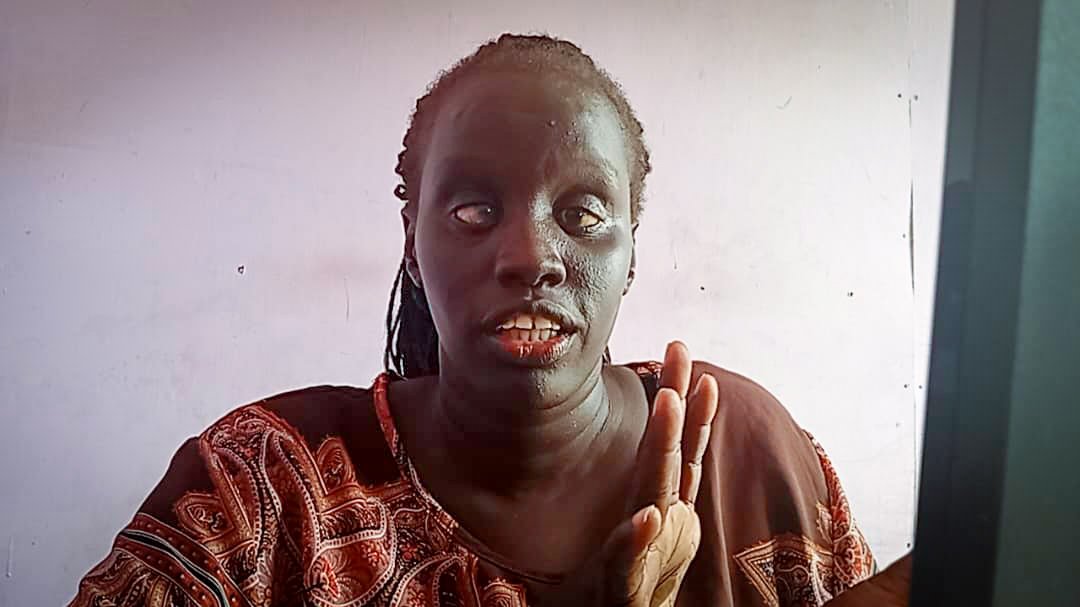By Jenifer James
In South Sudan, the recent ratification of the United Nations Convention on the Rights of Persons with Disabilities (UNCRPD) has sparked hope, particularly among women with disabilities. This international treaty guarantees essential rights, such as the right to live independently, access to employment, healthcare, and motherhood. These protections have created a foundation for women with disabilities to strive for equal opportunities and greater inclusion in society.
In an exclusive interview with Rebecca Thuom, the chairperson of the South Sudan Association for Women with Visual Impairs, she argues that despite these legal advances, women with disabilities still face significant challenges.
“You see, recently, South Sudan has ratified UNCRD, the UN Convention on the Rights of Persons with Disabilities, and that one protects the rights of women even in Article 7. It is talking about that women should live independently. They have a right to live within the community.” she said.
Thuom emphasized that many women with disabilities are excluded from critical discussions surrounding employment, education, and healthcare, adding that as a result of this exclusion, Thuom stressed the emotional toll it takes on women with disabilities.
“I know this is a challenge that we are seeing in our community. Neglecting women (in the sense) that they are unable to have their own employment. These are the things that we see sometimes, even in my heart. I feel bad in the community I am in.”
On 24 February 2023, South Sudan took a historic step forward for disability inclusion by signing the Convention on the Rights of Persons with Disabilities (CRPD). This means that the government will now have a legal duty to respect, protect, and fulfill the rights of people with disabilities in South Sudan.



